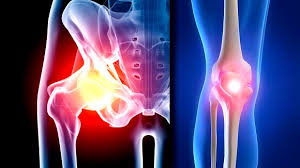- Home
- Editorial
- News
- Practice Guidelines
- Anesthesiology Guidelines
- Cancer Guidelines
- Cardiac Sciences Guidelines
- Critical Care Guidelines
- Dentistry Guidelines
- Dermatology Guidelines
- Diabetes and Endo Guidelines
- Diagnostics Guidelines
- ENT Guidelines
- Featured Practice Guidelines
- Gastroenterology Guidelines
- Geriatrics Guidelines
- Medicine Guidelines
- Nephrology Guidelines
- Neurosciences Guidelines
- Obs and Gynae Guidelines
- Ophthalmology Guidelines
- Orthopaedics Guidelines
- Paediatrics Guidelines
- Psychiatry Guidelines
- Pulmonology Guidelines
- Radiology Guidelines
- Surgery Guidelines
- Urology Guidelines
Glucosamine supplements don not help knee or hip arthritis pain- BMJ Study

Oral glucosamine, a natural supplement often marketed for joint pain, has no more effect than a dummy pill, according to a new review of available research.
The analysis of randomized controlled trials from which data have been made public found that at both three-month and 24-month follow-up points, the supplement had no effect on either hip or knee pain from arthritis.
Even analyses of the results for sub-groups of study participants, such as overweight people or those with high inflammation, found no benefit with the supplements.
“Most recent guidelines conclude there is an overall lack of efficacy of glucosamine, however, we knew that osteoarthritis could affect subgroups differently,” said senior study author Sita Bierma-Zeinstra of Erasmus University Medical Center in Rotterdam, the Netherlands.
The most recent report from the U.S. National Center for Health Statistics found that Americans spent nearly $13 billion in 2012 on natural product supplements, and glucosamine was one of the most popular.
The Osteoarthritis Research Society International and the U.S. National Institute for Health and Care Excellence recently issued guidance about the lack of evidence for glucosamine as a cure for joint pain.
“Before we threw the baby out with the bathwater, however, it was important to know whether different subgroups could have some effect,” Bierma-Zeinstra told Reuters Health by email.
The researchers analyzed data from randomized, controlled trials conducted between 1994 and 2014. Of the 21 studies they found on the subject, only six shared data through the OA Trial Bank, an international collection of data from trials conducted worldwide. None of the trials included in the analysis was funded by industry, the authors note.
Five of the trials, which altogether included more than 1,600 patients, compared glucosamine with a placebo. Five of the six studies investigated knee osteoarthritis, and one looked at hip osteoarthritis.
Overall, the effects of glucosamine and the placebo on pain and physical functioning didn’t differ, either in the short-term or one or two years later. The supplement was also no better than placebo among subgroups based on pain severity, severity of osteoarthritis, age, body mass index, gender or signs of inflammation.
“Of course, the most striking thing in this study is that when a commercial party funded the source, data sharing became difficult,” Bierma-Zeinstra said. “Open access to data from clinical studies, although propagated by many research organizations worldwide, is still far from common practice.”
In addition, the researchers found that data for a study published in 2006 was no longer available. Although data from older studies may disappear, that doesn’t often happen with recent ones, she added.
The research team plans to update subgroup data in the OA Trial Bank every five years. They’ll continue to contact clinical trial researchers to encourage them to contribute data to the project.
Future studies should look more closely at knee versus hip osteoarthritis and specific supplement types such as glucosamine sulfate versus glucosamine hydrochloride, the Bierma-Zeinstra’s team writes in the Annals of the Rheumatic Diseases.
“Consumers should be cautious about spending money on unproven treatments,” said Dr. C. Kent Kwoh, director of the University of Arizona Arthritis Center in Tucson.
“Most consumers believe that, as a ‘natural product,’ glucosamine is safe, but there are potential side effects,” he told Reuters Health by email. “There is very little evidence that oral glucosamine is beneficial for pain.”
Read the full article click on the following link : http://ard.bmj.com/content/early/2017/07/28/annrheumdis-2017-211149

Disclaimer: This site is primarily intended for healthcare professionals. Any content/information on this website does not replace the advice of medical and/or health professionals and should not be construed as medical/diagnostic advice/endorsement or prescription. Use of this site is subject to our terms of use, privacy policy, advertisement policy. © 2020 Minerva Medical Treatment Pvt Ltd